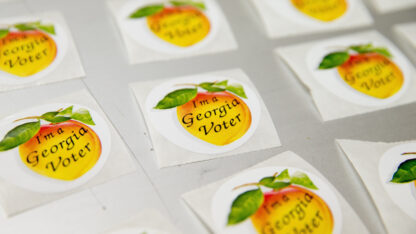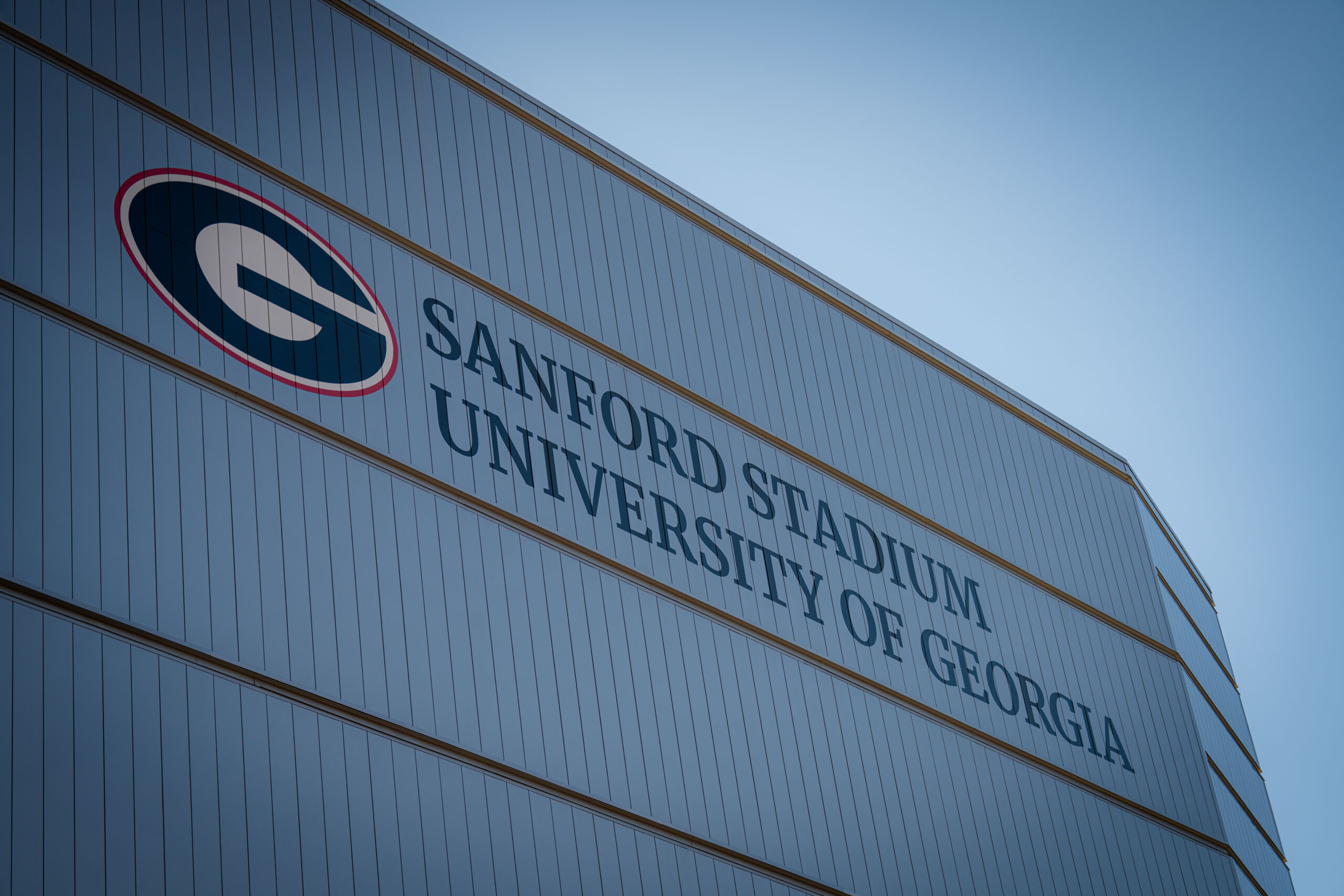Untangling Georgia’s Complicated Primary Delegate Rules

Jim Smith steps out of a voting booth after marking his ballot at a polling site for the New Hampshire primary, Tuesday, Feb. 9, 2016, in Nashua, N.H. (AP Photo/David Goldman)
David Goldman / Associated Press
On March 1, one of the biggest days in the presidential primary race, citizens of Georgia and other states around the South will vote on who should be the Republican and Democratic party nominees.
Georgia votes could swing the momentum in the race further toward Republican candidate Donald Trump or Democratic candidate Hillary Clinton, the current front-runners. They might also bolster Republicans Ted Cruz or Marco Rubio, as well as Democratic candidate Bernie Sanders.
For decades, momentum and pure popularity amongst voters have been the keys to the nomination. But underlying all of this are the party delegates — the human beings who will actually go the party conventions this summer and vote for the nominees. The path of how a Georgia vote turns into a delegate can be complex.
“It’s just hard to grasp, right; it’s hard to explain,” said Josh Putnam, a University of Georgia political scientist and the author of the Frontloading blog, about presidential primary delegate allocation. “That’s why I put people to sleep when I talk to them all the time.”

The votes of Georgians in what’s officially called the “presidential preference primary” trigger a complicated panel of switches at the regional and statewide levels that ultimately bind delegate votes to presidential candidates. A few of those delegates are, however, “unbound” — meaning they can cast a ballot for whichever candidate they want at the party conventions, despite the will of Georgia’s voters.
If the race hasn’t been decided by the time the conventions come around it could get messy, but Putnam is quick to point out that’s unlikely and hasn’t happened in decades.
Still, he admits, “It’s easy to look the chaos of now and say, gosh, that translates into a contested convention in either party or both parties.”
Rebecca DeHart is the executive director of the Democratic Party of Georgia, and she wrote the party’s rules for the 2016 primary.
“I’ve just been eating, sleeping, drinking this plan, you can imagine,” she said. “It’s really thick.”
DeHart loves the rules, but she also notes the delegates are actually humans that go to conventions, listen to potentially historic speeches … and party.
“We are going to have an absolutely fantastic time,” she said.
Alabama, Arkansas, Georgia, Massachusetts, Minnesota, Oklahoma, Tennessee, Texas, Vermont and Virginia all hold primaries on March 1 and each has slightly different rules.
In Georgia, if you’re keeping score of the delegates, the big thing to watch on Tuesday will be which Republican candidates can get more than 20 percent of the vote statewide. If a candidate doesn’t get past that 20 percent threshold, then they won’t be eligible for any of the party’s statewide delegates.
Georgia’s Republican party did not respond to requests for comment for this story.
9(MDAxODM0MDY4MDEyMTY4NDA3MzI3YjkzMw004))








